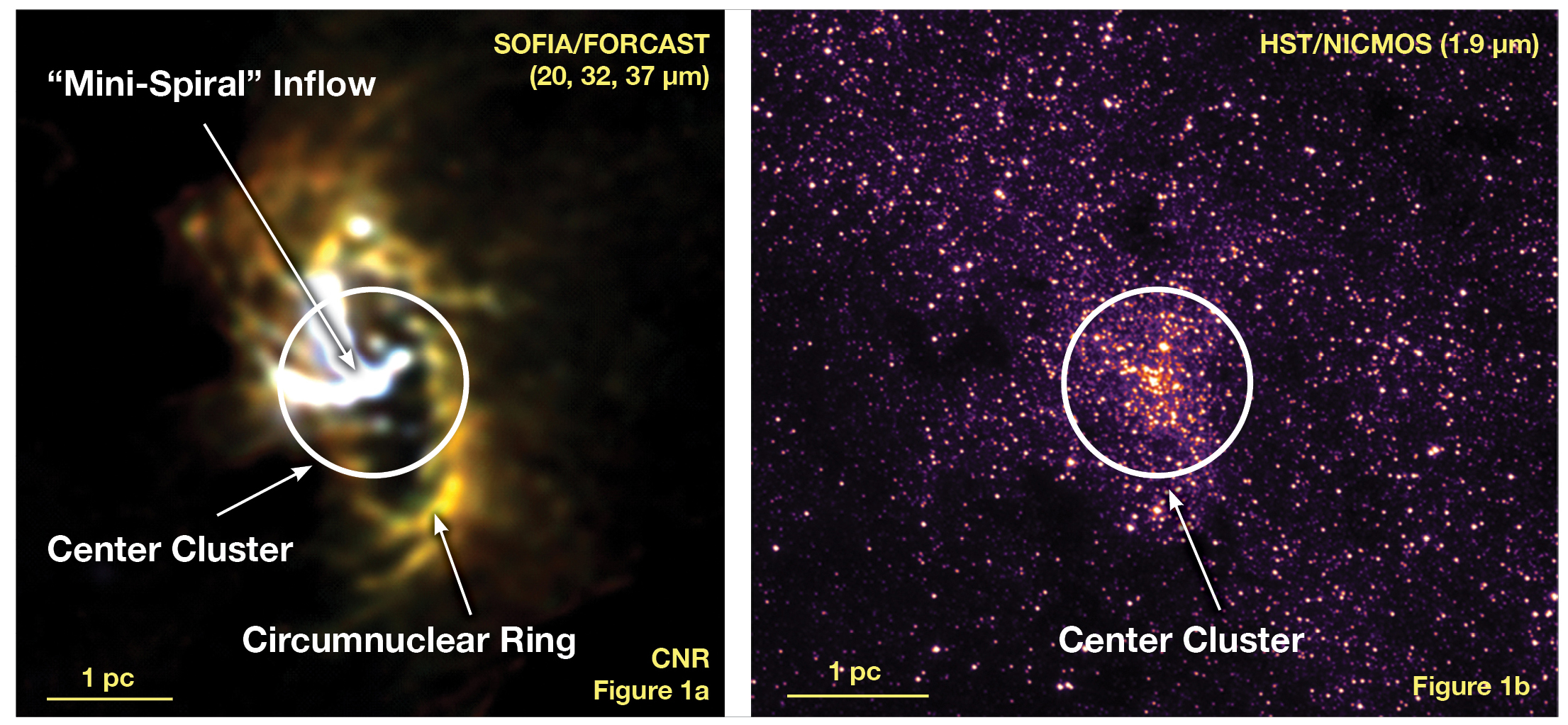
Figure 1a: SOFIA/FORCAST mid-infrared image of the Milky Way Galaxy's nucleus showing the Circumnuclear Ring (CNR) of gas and dust clouds orbiting a central supermassive black hole. The bright Y-shaped feature is believed to be material falling from the ring toward the black hole that is located where the arms of the "Y" intersect. Figure 1b: HST/NICMOS near-infrared image showing the same field of view with the same scale and orientation as Figure 1a. At this wavelength, opaque dust in the plane of the Milky Way hides features that are seen in the SOFIA image. In contrast, the stars in the HST image emit mostly visible and near-infrared light and so are not seen in the SOFIA mid-infrared image. Extra opacity due to especially dense concentrations of dust in the CNR produces patches of apparently lower star density in the near-infrared image.
Figure 1a: NASA/DLR/USRA/DSI/FORCAST Team/Lau et al. 2013; Figure 1b: NASA/HST/STScI/AURA